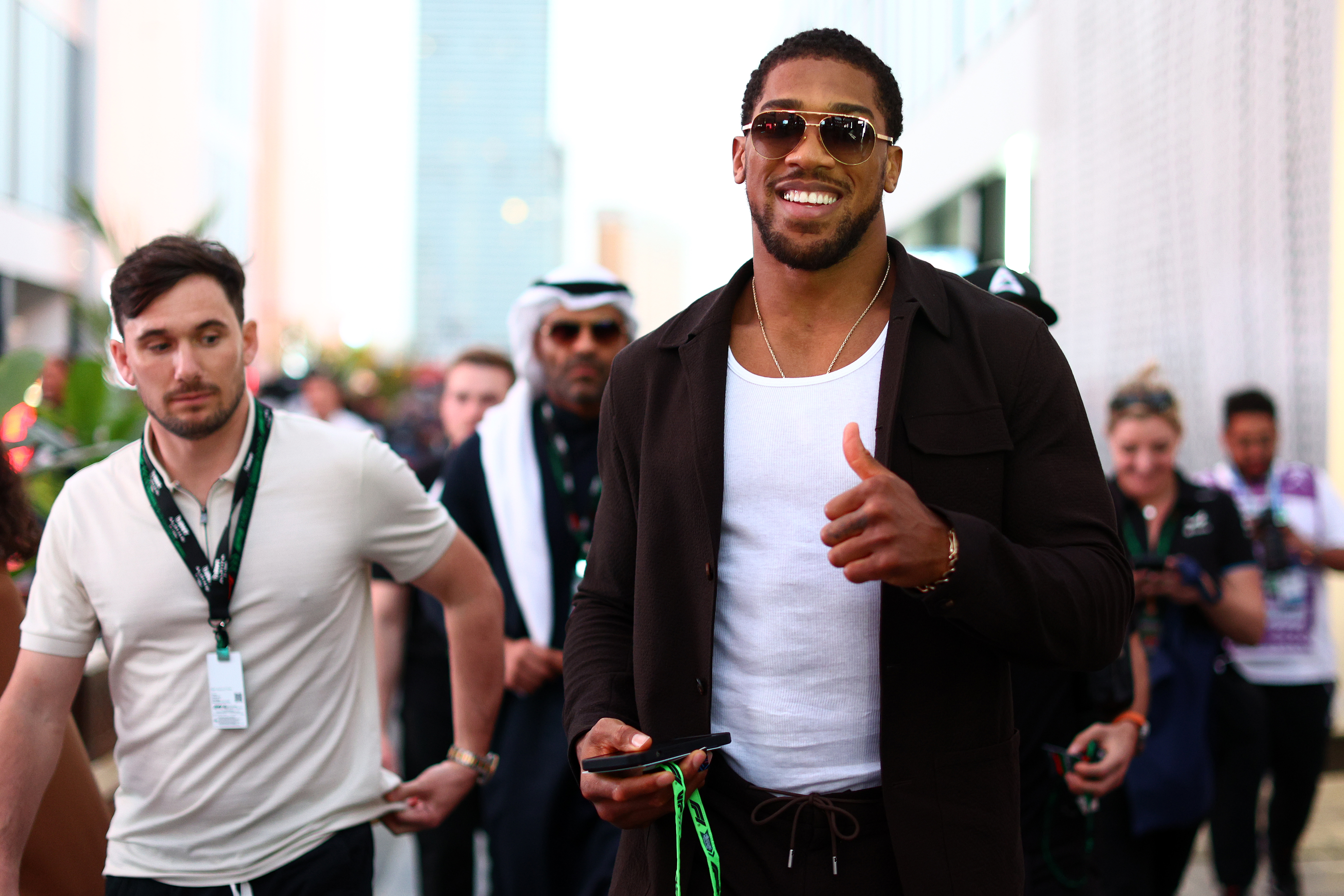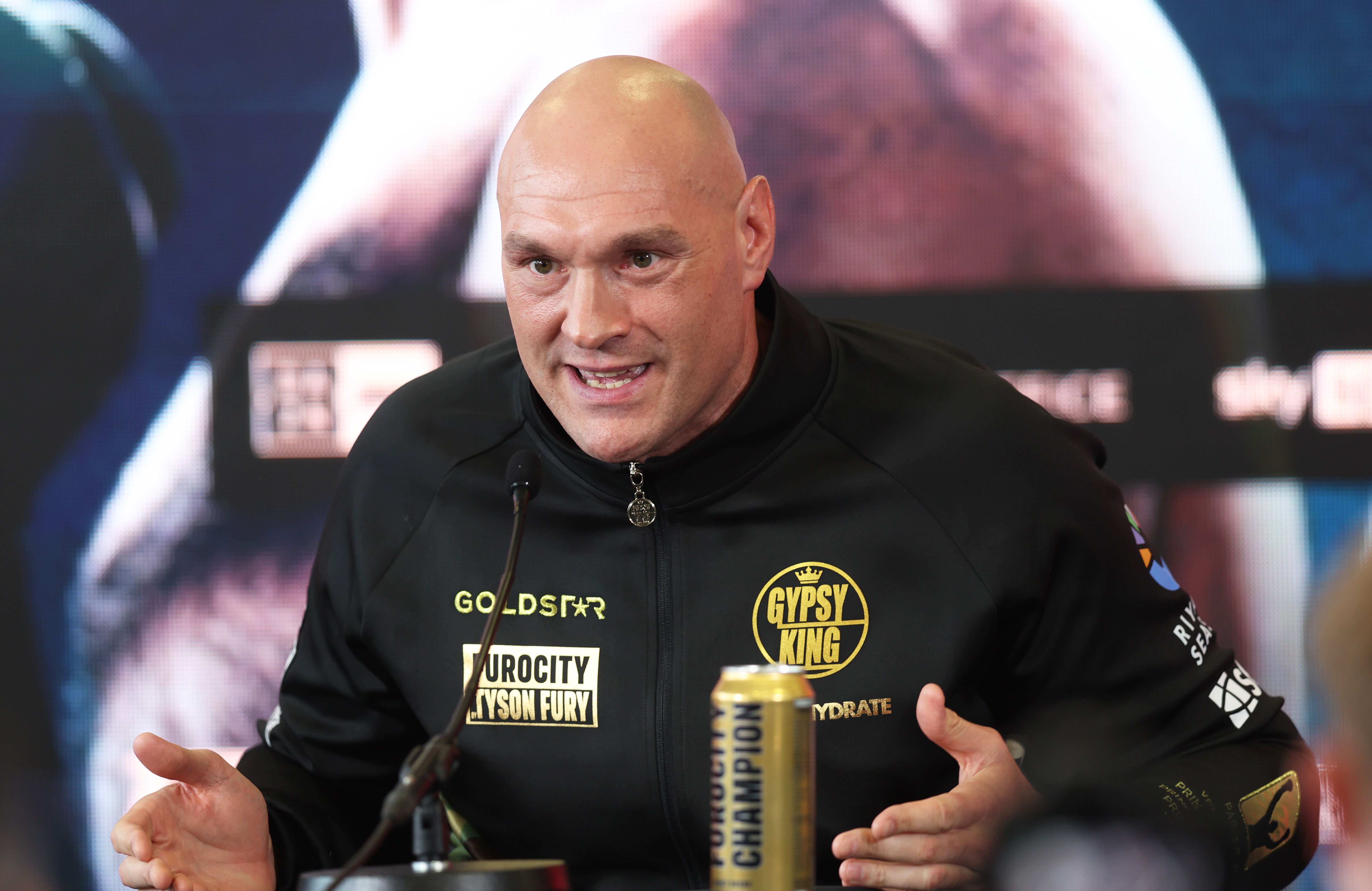Tyson Fury Eyes Billionaire Status
Tyson Fury is confident that he is on track to become boxing's first billionaire, with lucrative fights against Anthony Joshua and Oleksandr Usyk boosting his fortune.
Big Paydays on the Horizon
The Gypsy King has already raked in over £100million throughout his career and is set to add even more to his pockets with upcoming fights, including a historic four-belt unification bout and a potential rematch with Joshua.
Joshua Waiting in the Wings
Anthony Joshua is patiently waiting for the outcome of Fury's fights, with hopes of a mammoth Battle of Britain bout if the WBC champion emerges victorious.
Rematch Location Debate
Despite the lure of a £200million prize pot in the Middle East, Fury believes a potential rematch with Joshua should take place at Wembley Stadium, hinting at domestic pride.

Future Fight Plans
Fury, who has earned millions from previous fights, including a trilogy series with Deontay Wilder and a bout against Francis Ngannou, aims to have ten more fights in his career to reach billionaire status.
Frequently Asked Questions
How does a boxer progress from amateur level to professional level?
A significant change in competition, intensity of training, and mental preparedness is required to make the transition from amateurs to professionals. A boxer who wants to become a professional must have a solid track record. This is usually achieved by competing in local and national competitions. The key is to get a professional boxing certificate and work with managers and trainers that can guide you in your career and help secure professional bouts.
What are the roles of managers and promoters in a professional boxer’s career?
Promoters and managers have a major role to play in a fighter’s professional life. Managers have the responsibility of managing a boxer’s career, negotiating contract and dealing with his business affairs. The managers also help the boxer to choose the best fights, and look after his interests. The promoters focus more on organizing events, marketing fights and attracting sponsors and audience attention. This increases a boxer’s public profile and earnings potential.
How important is physical training in professional boxing?
Professional boxing demands a high level physical conditioning. The sport requires high levels of speed, strength, endurance, agility, and endurance. Professional boxers are required to follow a fitness regimen that includes anaerobic and aerobic exercises, resistance and strength training, as well as flexibility workouts. A boxer’s performance in the ring and ability to train is severely compromised without superior physical conditioning.
Anyone can learn how to box professionally.
Not everyone can compete at the professional level. Boxing is a sport that requires a special combination of physical strength, mental toughness, talent and dedication. Prospective boxers must also be willing to face the inherent risks of the sport. A thorough evaluation by a trainer will help determine the potential of a person to have a successful career in boxing.
How do boxers manage weight and maintain their weight class?
Boxers control their weight through a strict diet and a precise training regime. They typically work with nutritionists to develop a diet plan that ensures they can reach their weight class target without sacrificing nutrition and energy required for training. The importance of regular weight check-ins and regular exercise is crucial, especially in the run up to a fight. Weight management is an important strategic process. If done incorrectly it can lead to poor performance or health issues.
What are some of the most important components in a boxer’s training regime?
A boxer’s routine is made up of several main components. They include technical skill building, tactical drills and strength and conditioning. Sparring and mental training are also included. Tactical drills allow for the development of fight strategies while focusing on technique. Sparring is a great way to gain practical experience. Conditioning exercises improve athleticism. Mental training helps build confidence, focus, resilience and resilience.
How important is mental toughness to professional boxing?
Mental toughness and physical conditioning are equally important in professional boxing. Resilience, focus, pressure-handling ability, and psychological fortitude are all required in the sport. Mental preparation involves stress management techniques and developing an aggressive mindset in order to overcome the challenges of the ring. Without mental toughness a boxer will struggle to perform under the high pressure conditions of professional competition.
Statistics
- As per recent surveys, only about 17% of professional boxers reach a title shot opportunity in their careers.
- On average, a professional boxer spars between 100 to 200 rounds in preparation for a major fight.
- Research shows that a boxer’s reaction time is typically under 0.25 seconds, honed through repetitive drills and sparring.
- Less than 10% of professional boxers are undefeated throughout their career, highlighting the sport’s competitive nature.
- Cardiovascular fitness is critical, with a focus on high intensity interval training, comprising up to 40% of a boxer’s conditioning program.
- Nutrition experts emphasize that over 70% of a boxer’s diet should focus on carbohydrates and proteins for energy and recovery.
- An analysis of boxing injuries suggests that 90% involve the head, neck, and face, emphasizing the importance of protective gear.
External Links
boxingnewsonline.net
usaboxing.org
teamusa.org
precisionstriking.com
titleboxing.com
proboxing-fans.com
boxingforum24.com
How To
How to handle recovery after intense Boxing Training
For performance and progression, it is essential to have a recovery routine that works. Implement a cool-down routine after workouts that includes stretching and low-intensity cardio to reduce muscle soreness. Nutrition is important immediately after training. A combination of carbohydrates and protein can help muscle recovery. It is important to replenish the fluids you lost while exercising. To recover, it is important to sleep enough. Try for between 7-9 hours a night. Regular foam roller use and massage therapy will also help to reduce stiffness and support muscle recovery.
Did you miss our previous article…
https://www.sportingexcitement.com/boxing/ex-playboy-model-amber-fields-risks-wardrobe-malfunction-in-skintight-jumpsuit/

